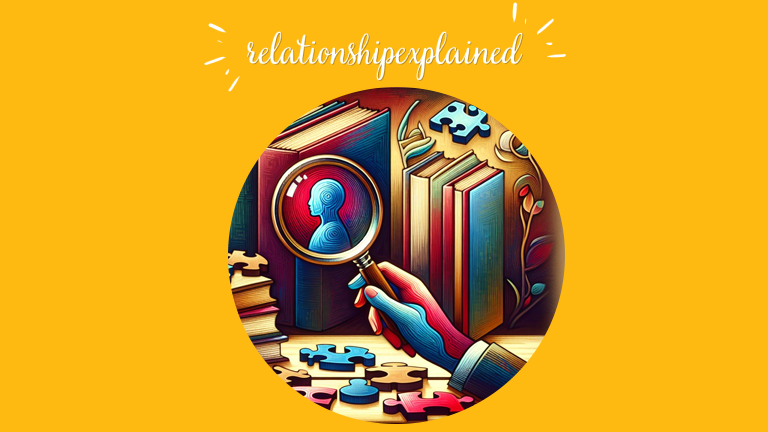Mastering Narcissistic Sibling Dynamics
Do you find yourself constantly walking on eggshells around your sibling, never quite sure when the next wave of competition or criticism will hit? It's a challenging situation, especially when these behaviors hint at a deeper issue like narcissism. Recognizing the signs of a narcissistic sibling is the first step in understanding how to navigate […]
Do you find yourself constantly walking on eggshells around your sibling, never quite sure when the next wave of competition or criticism will hit?
It's a challenging situation, especially when these behaviors hint at a deeper issue like narcissism. Recognizing the signs of a narcissistic sibling is the first step in understanding how to navigate this complex dynamic.
Well, we'll be going over:
- What are the key signs that your sibling might be exhibiting narcissistic traits?
- How do these behaviors impact your relationship and personal well-being?
- What strategies can you employ to manage this relationship while protecting your mental health?
Let's dive in.
Signs of Narcissism in a Sibling
Recognizing the signs of narcissism in a sibling is crucial for understanding and handling the dynamic of your relationship. When dealing with a narcissistic sibling, specific behaviors stand out.
First, you'll notice an incessant need for admiration. Your sibling may constantly seek validation and attention, making every conversation revolve around them. There's often a disregard for your feelings or achievements, as a narcissistic sibling tends to dominate the spotlight.
Another telltale sign is a lack of empathy. They might show little to no interest in your needs or feelings. It's not unusual for a narcissistic sibling to dismiss your emotions, making you feel invisible in the relationship.
Jealousy and competition are also common traits. Rather than celebrating your successes, a narcissistic sibling might attempt to overshadow or belittle them. This relentless rivalry can be exhausting and hurtful.
Understanding these behaviors is the first step toward navigating your relationship with a narcissistic sibling. Recognizing these patterns allows you to set boundaries and protect your mental well-being.
The Impact of Narcissistic Sibling Relationships
Narcissistic sibling relationships can profoundly affect your mental health and emotional well-being. Constant competition and comparison by a narcissistic sibling create an environment where your accomplishments may seem never enough. This relentless competition can lead to self-esteem issues and a persistent feeling of inadequacy, making you question your worth.
Moreover, the lack of empathy displayed by a narcissistic sibling means your feelings and needs are often ignored or belittled. This emotional neglect can result in feeling isolated or misunderstood within your own family. The dynamic is challenging because family bonds are expected to be sources of support, not conflict.
Efforts to confront or address issues with a narcissistic sibling often lead to manipulation or gaslighting, further complicating the relationship. Recognizing these impacts is crucial for seeking appropriate support and setting boundaries that protect your mental health.
Navigating Competition and Rivalry
Dealing with a narcissistic sibling often means you're caught in a relentless cycle of competition and rivalry. This isn't just about sibling squabbles; it's a deeper, more insidious form of conflict. Your sibling's need to be seen as the best can leave you feeling like you're always in their shadow, endlessly competing for recognition and love that seems just out of reach.
- Establish Your Boundaries: You need to set clear boundaries to protect your mental and emotional well-being. This means deciding what behavior you will not tolerate and communicating these limits firmly.
- Focus on Your Own Goals: Rather than engaging in competition, direct your energy towards achieving your personal aspirations. Your sibling's need for superiority can't dictate your life's course.
- Seek External Support: Sometimes, you need an objective perspective. Whether it's friends, other family members, or professional help, outside support can provide the validation and advice you need to navigate this challenging dynamic.
Remember, your worth is not measured by your ability to outshine your sibling. Focusing on your own path and well-being is crucial in maintaining a sense of balance and self-esteem in a relationship marked by competition and rivalry.
Coping with a Lack of Empathy
Dealing with a sibling who shows a lack of empathy can be particularly draining. Narcissistic siblings often fail to recognize or validate your feelings, making you feel isolated or misunderstood. It’s crucial to remember that their inability to empathize is a reflection of their disorder, not a flaw in your character.
To manage this aspect of your relationship, focus on building a support system outside the familial realm. Friends, mentors, or professional counselors can provide the understanding and validation you're not receiving at home. Engaging in activities that boost your self-esteem can also mitigate the impact of their indifference.
Establishing boundaries is key. Let your sibling know, calmly and firmly, what behavior you will not tolerate. Be specific about the consequences of overstepping these boundaries. Remember, you're entitled to protect your mental and emotional well-being, even if it means limiting interactions with your sibling.
Strategies for Managing the Relationship
Dealing with a narcissistic sibling requires a blend of patience, clear boundaries, and self-care. You're navigating a relationship that’s uniquely challenging, but with the right strategies, you can protect your emotional and mental well-being.
Firstly, establish clear boundaries. Decide the limits of what you will tolerate and communicate these to your sibling firmly but respectfully. Boundaries aren't about controlling the other person but protecting yourself. When your sibling knows there are certain lines they can't cross, it might deter the behaviors that cause you the most stress.
Prioritize self-care. In the whirlwind of dealing with a narcissistic sibling, don't neglect your needs. Engage in activities that replenish your energy and bring you joy. Whether it's a hobby, exercise, or spending time with friends, focusing on your happiness is crucial.
Seek external support. You’re not alone. Sometimes, the best insights and support come from outside your family circle. Consider therapy, support groups, or trusted friends who can offer a listening ear and advice. This external perspective can be invaluable in maintaining your sanity and emotional health.
Remember, managing a relationship with a narcissistic sibling is about striking a balance between self-protection and engagement.
Conclusion
Navigating the turbulent waters of a relationship with a narcissistic sibling is no easy feat. It's crucial to arm yourself with knowledge and strategies that safeguard your emotional well-being. Remember, recognizing the signs and understanding the dynamics at play are your first steps toward healing. Prioritizing self-care and setting firm boundaries aren't just options; they're necessities in preserving your mental health.
While it might feel daunting at times, seeking external support can provide you with the strength and perspective needed to manage this complex relationship. Above all, know that you're not alone in this journey. With the right tools and support, you can navigate these challenges and foster a sense of peace and well-being in your life.












